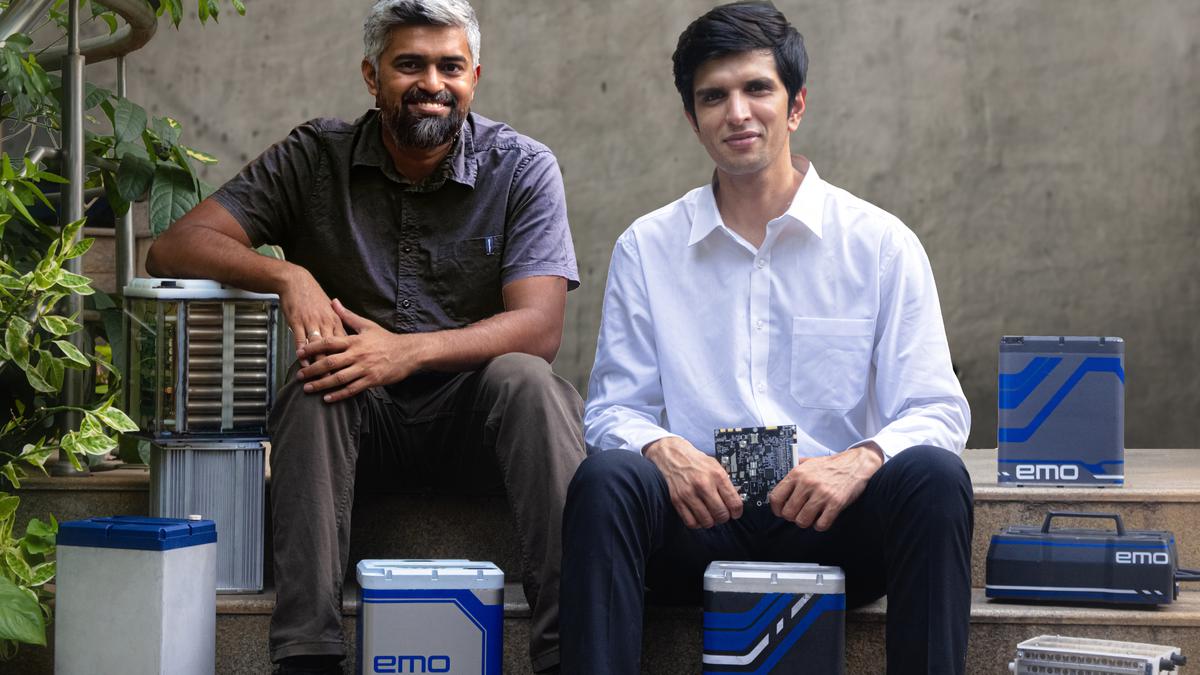
Bengaluru start-up offers a ‘ZEN’ solution to fire risks and low life of EV batteries Premium
The Hindu
The adoption of electric vehicles has been on the rise in India. As per data from the Ministry of Heavy Industries, more than 27 lakh electric vehicles have been registered in the country as of July 2023 with Karnataka seeing the third highest number of registrations.
The adoption of electric vehicles has been on the rise in India. As per data from the Ministry of Heavy Industries, more than 27 lakh electric vehicles have been registered in the country as of July 2023 with Karnataka seeing the third highest number of registrations.
However, incidents of electric vehicles and battery swapping stations catching fire have been a cause of concern to consumers and potential users.
“Over the last year, more than 200 vehicles caught fire in India, primarily due to overcharging and overheating or short circuits. Batteries are not designed to withstand the abuse, and in the scenario where a cell bursts, the whole vehicle catches fire due to improper mitigation,” says Mohammed Shoeb Ali, co-founder and managing partner at Transition VC, an energy transition-focused venture capital fund.
Bengaluru-based startup EMO Energy may have a solution for it. Founded by Sheetanshu Tyagi and Rahul Patel, EMO Energy has developed a platform which combines software, hardware, cloud, and intelligence to improve safety and life of batteries. Called ZEN, the platform targets battery usage in high energy and high-power applications from electric two wheelers to agriculture to mining and construction.
“We realised that all these applications have the same kind of issues. One is safety,” says Mr. Tyagi.
“You are operating in high temperature, and you want batteries that charge fast, pull more power and are smaller in size. And then there’s the concern of life. While vehicles have a life of seven to eight years, every two to three years you are losing a battery,” he adds.
The team put together their heads to understand how they could enhance the performance of batteries and solve the existing problems around it.













